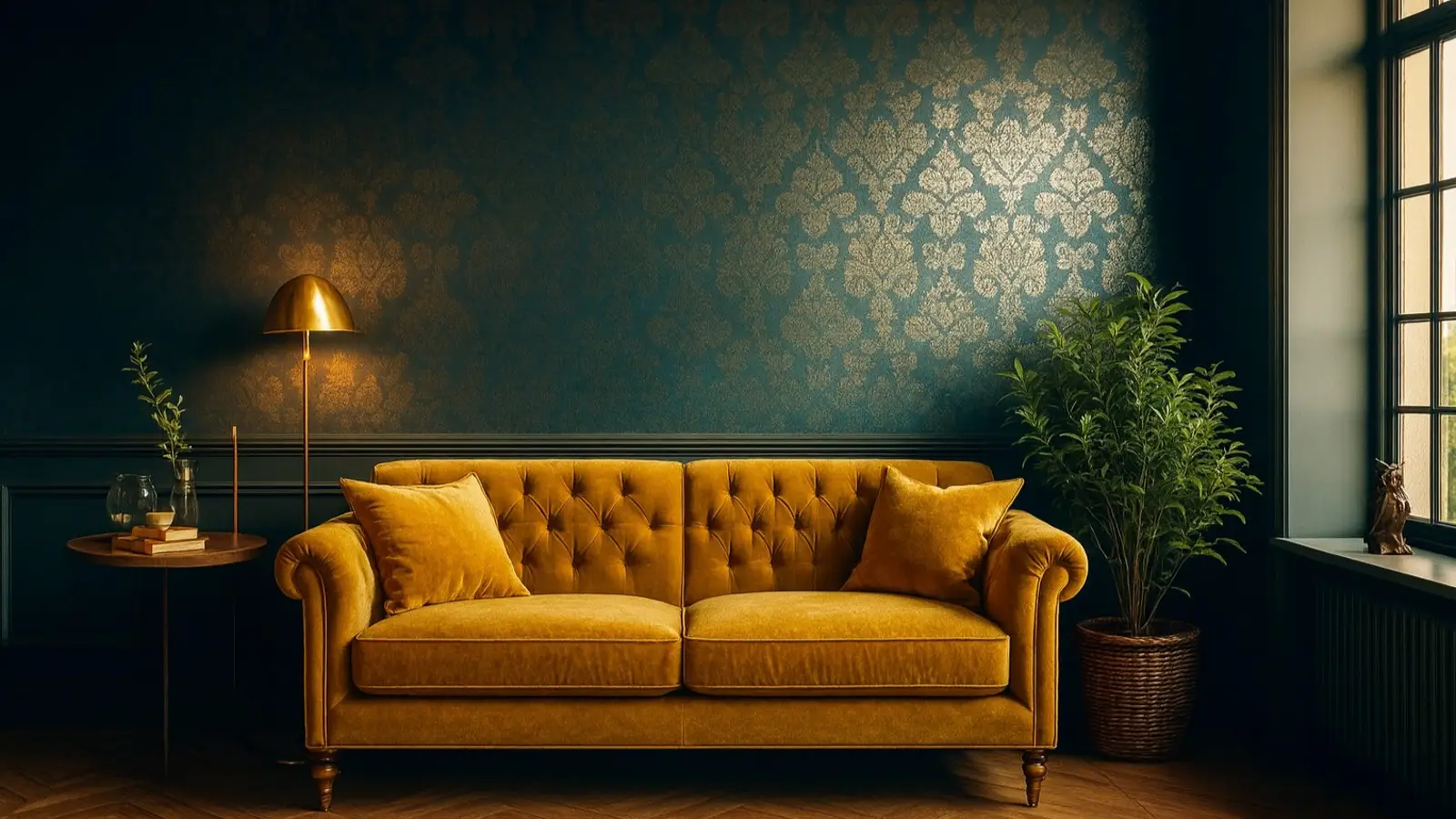https://boda.su/en/posts/id591-dark-wallpaper-ideas-expand-space-with-depth-and-style
Dark Wallpaper Ideas: Expand Space with Depth and Style
How Dark Wallpaper Can Transform Small and Large Rooms
Dark Wallpaper Ideas: Expand Space with Depth and Style
Discover how dark wallpaper creates depth, enhances contrast, and transforms small or large rooms with light, texture, and bold design accents.
2025-10-01T09:57:46+03:00
2025-10-01T09:57:46+03:00
2025-10-01T09:57:46+03:00
Breaking the Stereotypes
For years, the rule of thumb in interior design was simple: light-colored walls make a room look bigger. Yet, more and more designers are turning that belief upside down. With the right approach, dark wallpaper can actually open up a space. The secret lies in texture, lighting, and carefully placed accents.
The Depth Effect
A study by the Milan School of Design revealed an intriguing visual trick: deep shades can create an illusion of depth. Dark walls appear to recede, giving a room more volume. Matte finishes enhance this impression even further, as they absorb light and create a balance between intimacy and spaciousness.
Color and Lighting
Rich tones of blue, green, and gray are often the most effective choices. They feel natural, avoid overwhelming the eye, and pair easily with furniture. Lighting, however, is the decisive factor. Spotlights, wall sconces, and natural daylight work together to cast subtle shadows and amplify the sense of depth.
Contrast and Texture
Against dark walls, furniture immediately becomes more striking. Light-colored or metallic elements stand out, creating bold contrasts. Smooth finishes lend a sharp, minimalist character to the room, while textured surfaces bring movement and variety. Using a single shade on all walls ties the space together, reinforcing harmony and flow.
Small Rooms, Big Atmosphere
Dark wallpaper is not just for grand spaces. In smaller rooms like bedrooms or home offices, it fosters a sense of intimacy while simultaneously stretching the perceived boundaries of the walls. The right interplay of color, texture, and light transforms this design choice into a powerful tool for reshaping space.
A Design Opportunity
Dark wallpaper should not be seen as a risk but as an opportunity. It offers a way to change how we experience a room, unlocking an effect once thought impossible.
Dark Wallpaper, Interior Design, Small Rooms, Room Depth, Wall Colors, Home Decor, Contrast and Texture, Cozy Atmosphere, Design Tips
2025
articles
How Dark Wallpaper Can Transform Small and Large Rooms
Discover how dark wallpaper creates depth, enhances contrast, and transforms small or large rooms with light, texture, and bold design accents.
Generated by Dall-e
Breaking the Stereotypes
For years, the rule of thumb in interior design was simple: light-colored walls make a room look bigger. Yet, more and more designers are turning that belief upside down. With the right approach, dark wallpaper can actually open up a space. The secret lies in texture, lighting, and carefully placed accents.
The Depth Effect
A study by the Milan School of Design revealed an intriguing visual trick: deep shades can create an illusion of depth. Dark walls appear to recede, giving a room more volume. Matte finishes enhance this impression even further, as they absorb light and create a balance between intimacy and spaciousness.
Color and Lighting
Rich tones of blue, green, and gray are often the most effective choices. They feel natural, avoid overwhelming the eye, and pair easily with furniture. Lighting, however, is the decisive factor. Spotlights, wall sconces, and natural daylight work together to cast subtle shadows and amplify the sense of depth.
Contrast and Texture
Against dark walls, furniture immediately becomes more striking. Light-colored or metallic elements stand out, creating bold contrasts. Smooth finishes lend a sharp, minimalist character to the room, while textured surfaces bring movement and variety. Using a single shade on all walls ties the space together, reinforcing harmony and flow.
Small Rooms, Big Atmosphere
Dark wallpaper is not just for grand spaces. In smaller rooms like bedrooms or home offices, it fosters a sense of intimacy while simultaneously stretching the perceived boundaries of the walls. The right interplay of color, texture, and light transforms this design choice into a powerful tool for reshaping space.
A Design Opportunity
Dark wallpaper should not be seen as a risk but as an opportunity. It offers a way to change how we experience a room, unlocking an effect once thought impossible.

